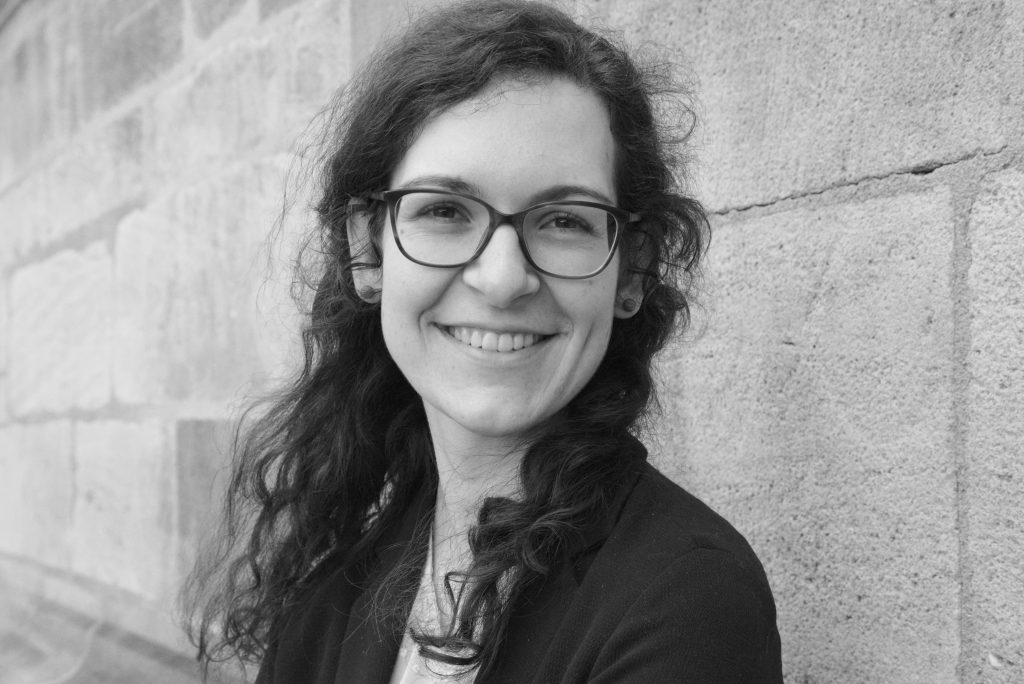
contact
Goethe-University Frankfurt
GRK Doing Transitions
address:
IKB-building, 4th floor
room 4750/4790
Eschersheimer Landstraße 121
60322 Frankfurt am Main
postal address:
Theodor-W.-Adorno-Platz 1
IKB-Gebäude, Postfach 3
60323 Frankfurt am Main
s.niedoba(at)em.uni-frankfurt.de
Simone Niedoba studied Psychology with focus on Clinical and Health Psychology in Mainz. Her research and work focus is on Gerontopsychology, especially on the topic of dementia. She worked as scientific associate on the research project „Healthy Aging and Dementia” and the study of perception of older people at the University of Mainz and organized an interdisciplinary conference on age and aging in Mainz. Her master’s thesis was on socialization in the early phase in one’s first job. She took further qualification in solution-focused brief counselling and worked in the field of health- and crisis management of the German train company. As a member of the research training group “doing transitions”, she will return to the field of Gerontopsychology and write her dissertation about “transitions in the early phase of dementia”. She aims to answer the question of, how people deal with the diagnosis of dementia, interact with their environment and are influenced by individual and institutional factors and strategies. The goal is to develop a tool that can measure these factors and strategies. People with dementia, their relatives as well as other people in their environment are within the research focus.
Transitions in the early phase of dementia
Aim of the dissertation is to describe the transition and the accompanying processes in the early phase of dementia and to explain how people deal with challenges and integrate them into their personal history with the help of a newly developed research tool. People with dementia, their relatives and professionally accompanying people are considered as actors of shaping the transition after a diagnosis of dementia. Focus of analysis is on individual handling and is complemented by the analysis of institutional regulation through person-environment processes. Theoretical models of transitions and environmental psychology serve as basis of description of the processes of producing and shaping the transition. Furthermore, theories of coping are also considered. On this theoretical basis and by using statistical analysis a research tool will be developed that measures strategies of all involved people dealing with the early phase of dementia. Behavior-related as well as emotional-cognitive-related strategies and resources for integrating into people’s own history are analyzed under consideration of regulating person-environment processes. This research goes beyond intraindividual coping research and thus contributes to the understanding of transitions from health to dementia. It offers a tool for research and practice to better support people with dementia and other people in their environment.
